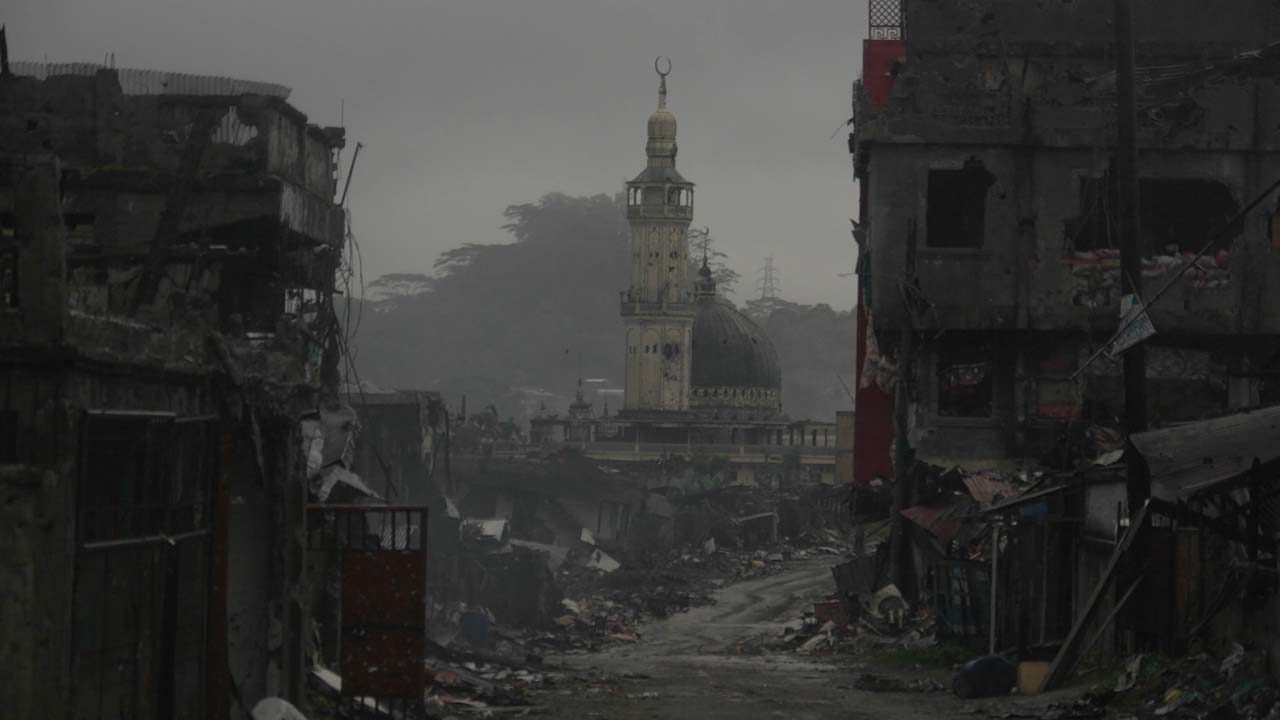SUMMARY
This is AI generated summarization, which may have errors. For context, always refer to the full article.

MANILA, Philippines – Peacebuilding organization International Alert Philippines on Wednesday, November 29, urged the government to make sure that the rehabilitation of Marawi City will include efforts to build communities that are resilient to the threat of extremism.
During the launch of Conflict Alert 2017 on Wednesday, International Alert Philippines country manager Francisco Lara Jr pointed out that the rehabilitation so far seems to be a “physical type of response.”
“Actually if you look at the plan, it’s almost a remake of Yolanda [rehabilitation]. In fact, we’ve heard that some of the resources in Yolanda that haven’t been spent will be spent in Marawi. So is the government treating this as a natural calamity? I hope not. Are they treating this simply as a matter of building, constructing infrastructure? I hope not,” he said, referring to Super Typhoon Yolanda (Haiyan).
He said government agencies dealing with poverty and social welfare “do not figure prominently” in Task Force Bangon Marawi.
The inter-agency task force is headed by the chairperson of the Housing and Urban Development Coordinating Council, with the secretaries of the Department of National Defense and the Department of Public Works and Highways as vice chairpersons.
“Much of the work needs to be on how do you build resilient communities – resilient now to the threat of extremism, not only resilient in terms of being able to rise up again from war, but resilient in being able to turn back or push back attempts to further encourage or attract the youth,” Lara explained.
This means looking not only at areas that were affected by the 5-month conflict, but even at areas that were not affected and were able to “push back against the extremism.”
“What happened to the Lanao [del] Norte corridor? They’re closed, they weren’t affected. What happened to the Buldon-Barira-Matanog corridor? Maute tried to penetrate that area, they were pushed back, so what were the factors in these communities that made them impervious to penetration, versus what were the factors in Butig, Piagapo, Saguiaran, and Marawi that made it vulnerable to penetration?”
International Alert Philippines deputy country manager Nikki de la Rosa then warned against the danger of “disincentivizing” areas that “performed well” and have been resilient to violent extremism.
“The government cannot fall into a trap of putting all its resources in Marawi and leaving the others…because that will also cause some more problems in the future,” she explained.
Youth involvement
Lara also noted that despite the “defeat” of the Maute Group in Marawi City, their ideology “remains.”
“The ideology remains, and there are a lot of people – we also know young people who actually were inspired by what happened in Marawi. Now having said that, the big problem really is the entire rehabilitation, rebuilding of Marawi will certainly shape the process or the growth of extremism,” he added.
Because of this, De La Rosa said there should be a “meaningful involvement” of the youth in discussions regarding rehabilitation.
“How can they participate meaningfully in the rebuilding process and in the redesign of the strategies and the framework of Marawi? Because Marawi will be a litmus test for future events that will happen in Mindanao,” she added.
If the rebuilding of Marawi is “handled well,” Lara said this will serve as a “counterpoint to further radicalization among young people.”
He added that the potential rise in incidents related to violent extremism after the Marawi crisis will also be conditioned by the entire issue of the Bangsamoro Basic Law, “issues related to the history of war in particular areas that make it vulnerable to violent extremism,” and the rise of shadow economies.
International Alert Philippines’ latest Conflict Alert noted that the biggest causes of violent conflict in the Autonomous Region in Muslim Mindanao are shadow economy issues. Shadow economies pertain to the informal or underground sectors of the economy that tend to fuel violent conflict. – Rappler.com
Add a comment
How does this make you feel?
There are no comments yet. Add your comment to start the conversation.